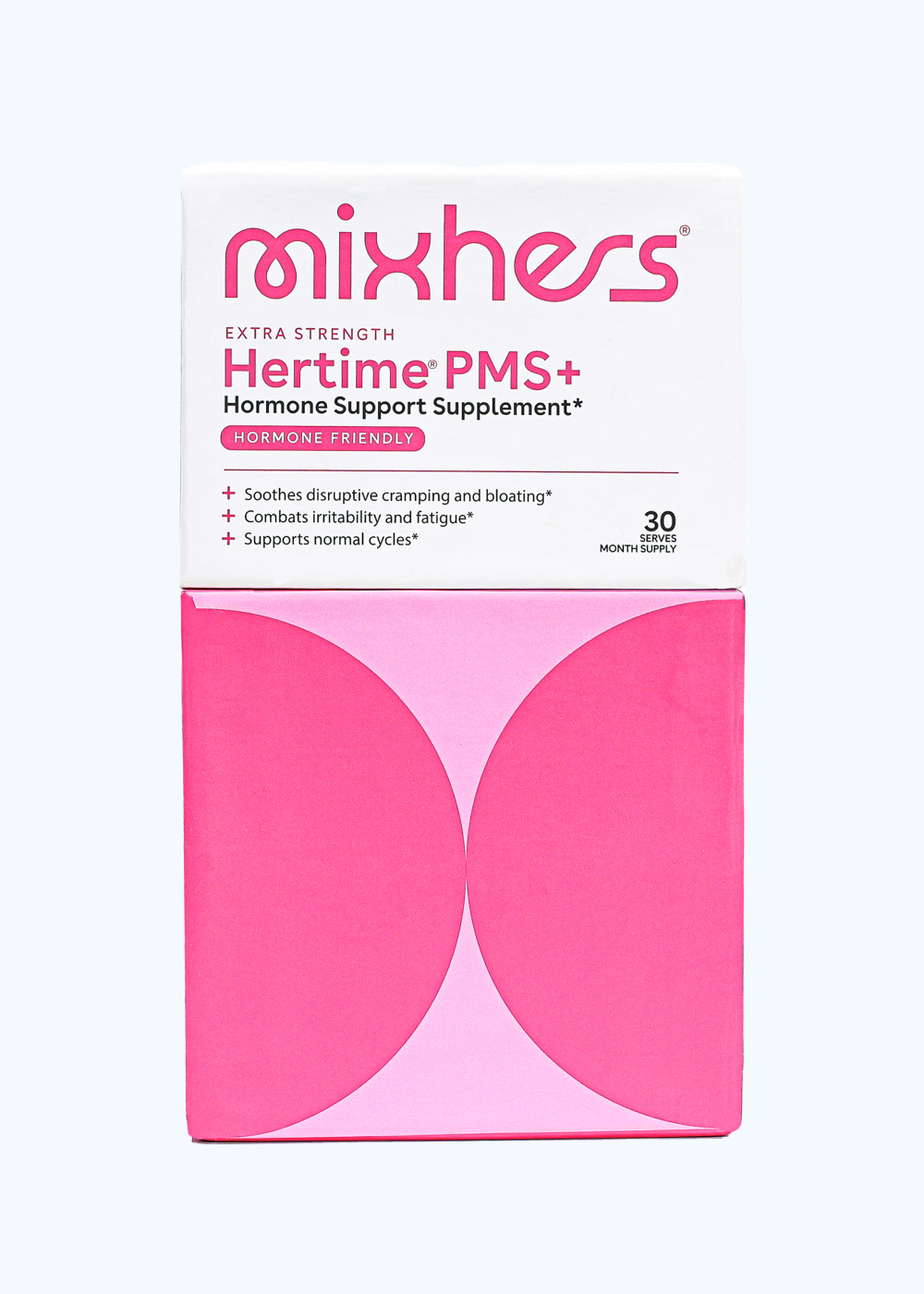A healthy sex drive is a crucial part of a woman's overall well-being. Typically, your sex drive is a reflection of the emotional intimacy you experience in your relationships and the state of your physical health. However, a woman's sex drive can fluctuate dramatically due to a variety of things, including her hormonal landscape, physical factors, and environmental influences.
Understanding how these factors play out over different stages of life can help women maintain a satisfying and healthy sex drive. This guide explores how hormones affect a woman's libido in her twenties, thirties, forties, fifties, and beyond, with natural, hormone-friendly steps to optimize sexual health at each stage.
The Twenties and Thirties: Exploring and Finding Balance
Hormonal Landscape
In her twenties, a woman's hormones are typically at their peak, with estrogen and testosterone levels high and stable. These hormones are key drivers of libido. Estrogen enhances vaginal lubrication and sensitivity, while testosterone boosts sexual desire and arousal. This hormonal harmony often results in a robust and consistent sex drive, making this decade one of the most sexually active periods of a woman's life.
Many sexually active women are also on hormonal birth control during this decade, which can significantly impact a woman's libido due to its influence on hormone levels. Birth control methods like the pill, patch, or hormonal IUD work by altering the natural hormonal cycle, primarily by suppressing ovulation and changing levels of estrogen and progesterone.
For some women, this can lead to a decrease in testosterone, which plays a crucial role in sexual desire. As a result, some women may experience a reduced sex drive, decreased lubrication, or changes in sexual satisfaction. However, the effects vary widely, with some women noticing no change or even an increase in libido due to the stability and predictability that hormonal birth control can provide.
Physical Factors
Physically, women in their twenties are often at their reproductive peak, which can correlate with a higher sex drive. Energy levels tend to be higher, and overall health is usually robust, supporting a vibrant libido.
During the thirties, women may start experiencing subtle hormonal shifts as their bodies transition from the hormonal stability of their twenties. Estrogen and progesterone levels may begin to fluctuate more noticeably, especially during pregnancy. These hormonal changes can lead to varied effects on libido, sometimes enhancing sexual desire due to increased blood flow and sensitivity, and other times diminishing it due to hormonal imbalances.
Because a woman’s fertility is typically optimal during her twenties and thirties, many women in this age range will spend time trying to conceive, carrying a pregnancy, delivering a baby, and caring for young children. These physical demands can have a profound impact on a woman's sex drive.
During the process of trying to conceive, the focus on timing and fertility can introduce stress and pressure, potentially diminishing sexual spontaneity and desire. Pregnancy brings its own set of challenges, including hormonal fluctuations, physical discomfort, and body image changes, all of which can affect libido.
After childbirth, recovery from labor, hormonal shifts, sleep deprivation, and the demands of caring for a newborn can lead to fatigue and reduced sexual interest. Additionally, concerns about physical healing and changes in body perception can negatively impact a woman's sexual desire during this period.
Environmental Influences
The twenties are a time of exploration and establishing relationships. This decade often involves significant life changes, such as graduating from college, starting a career, and forming long-term partnerships. These experiences can enhance or diminish libido depending on stress levels and personal circumstances.
The excitement of new experiences and the freedom to explore different aspects of sexuality often lead to a dynamic and adventurous sex life.
The thirties often involve juggling multiple responsibilities, creating a complex landscape of stress and fatigue that can affect libido. Many women in this decade are advancing in their careers, raising young children, and maintaining personal relationships, all of which demand time and energy. The pressure to balance professional achievements with family life and personal goals can be overwhelming.
Stress from these responsibilities can lead to decreased sexual desire, as the body's stress response can interfere with hormonal balance and overall energy levels. However, supportive relationships and effective stress management techniques can help mitigate these effects and support a healthy sex drive.
It's important to remember that every woman's experience with her sex drive in her twenties and thirties can be different. While some may find their libido at an all-time high, others might face challenges such as stress, health issues, or personal circumstances that affect their desire.
A healthy sex drive doesn't have to look the same for everyone; what's most important is that each woman feels comfortable and satisfied with her own sexual health and experiences. Embracing these differences and understanding that fluctuations are normal can help women maintain a positive and healthy outlook on their sexual well-being.
Hormone-Friendly Steps to Enhance Libido
- Maintain a Healthy Diet: Eating a balanced diet rich in fruits, vegetables, lean proteins, and healthy fats can support hormonal balance.
- Exercise Regularly: Physical activity boosts endorphins and blood flow, enhancing sexual desire.
- Manage Stress: Practices such as yoga, meditation, and mindfulness can help manage stress, which is crucial for maintaining a healthy sex drive.
- Communicate with Partners: Open communication about sexual needs and desires can enhance intimacy and satisfaction. Regular date nights and intimate conversations can help maintain a strong emotional and physical connection.
- Prioritize Self-Care: Ensuring adequate sleep, nutrition, and exercise is crucial. Self-care routines can help manage stress and boost energy levels.
- Seek Support: Building a support network of friends, family, and healthcare providers can alleviate some of the pressures of this decade.
- Explore Sexual Wellness Products: Products such as lubricants or hormone-friendly supplements can enhance sexual experiences.
Embracing Your Sex Drive Journey Through the Decades
Understanding how hormones affect a woman's sex drive across different stages of life is essential for maintaining a healthy and satisfying sexual experience. We hope this guide can help you recognize the unique factors that influence libido in each decade. We believe that by taking proactive, natural steps to support hormonal balance and overall well-being, women can enjoy a vibrant and fulfilling sex life at any age.
Remember, communication with healthcare providers and partners is key to navigating these changes and finding the best strategies to enhance sexual health and happiness.
Not sure which drink is right for you?
Get matched with products designed for your unique wellness goals.
Featured Product

Libido
Pleasure Support Supplement











